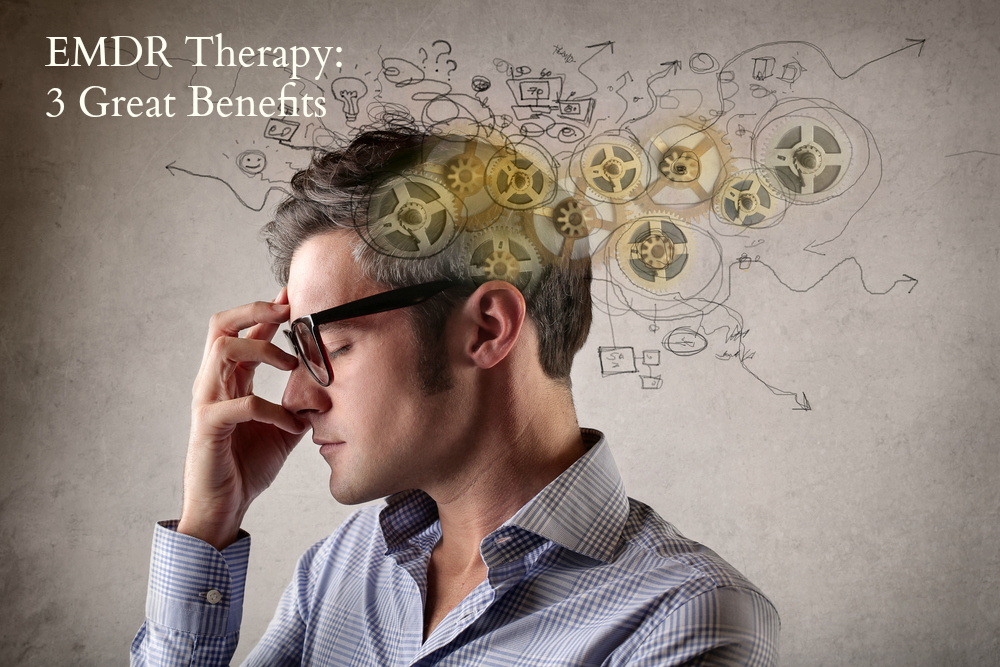The Benefits of EMDR Therapy
EMDR (Eye Movement Desensitization and Reprocessing) therapy is a powerful psychotherapy approach that has gained significant recognition for its effectiveness in treating various mental health conditions. In this article, we will explore the numerous benefits of EMDR therapy and how it can unlock healing and growth for individuals seeking relief from trauma, anxiety, and other emotional challenges.
Overcoming Trauma and PTSD
EMDR therapy has shown remarkable success in helping individuals overcome traumatic experiences and post-traumatic stress disorder (PTSD). By targeting the root causes of trauma, EMDR enables individuals to process distressing memories and emotions in a safe and controlled environment. This therapy empowers individuals to reprocess traumatic events, leading to a reduction in distress and the development of healthier coping mechanisms.
Alleviating Anxiety and Phobias
Anxiety disorders and phobias can significantly impact an individual’s quality of life. EMDR therapy offers a unique approach to addressing these conditions by targeting the underlying causes and associated negative beliefs. Through the use of bilateral stimulation, such as eye movements or tactile sensations, EMDR helps individuals reprocess anxiety-provoking memories and reduce the intensity of their emotional and physiological responses. This process facilitates the development of new, adaptive beliefs and behaviors, leading to a reduction in anxiety symptoms and phobic reactions.
Enhancing Emotional Regulation
EMDR therapy aids in improving emotional regulation by addressing the dysregulation caused by past traumatic experiences. By reprocessing distressing memories, individuals can gain a greater sense of control over their emotions and responses. EMDR helps individuals develop healthier coping strategies and allows them to navigate challenging situations with increased emotional resilience.
Resolving Grief and Loss
Grief and loss can be incredibly challenging to navigate, often leading to prolonged emotional distress. EMDR therapy can be effective in helping individuals process unresolved grief and find closure. By targeting the emotional and cognitive aspects of grief, EMDR facilitates the integration of the loss into one’s life, allowing individuals to move forward while still honoring the memory of their loved one.
Improving Self-Esteem and Self-Confidence
Low self-esteem and self-confidence can hinder personal growth and fulfillment. EMDR therapy addresses the negative beliefs and experiences that contribute to these issues, allowing individuals to reprocess and reframe their self-perception. By targeting past events that have shaped one’s self-image, EMDR helps individuals develop a more positive and realistic view of themselves, leading to improved self-esteem and self-confidence.
Enhancing Performance and Creativity
EMDR therapy is not limited to addressing emotional challenges; it can also be beneficial for enhancing performance and creativity. By targeting past experiences that may be inhibiting one’s potential, EMDR helps individuals overcome mental blocks and self-limiting beliefs. This therapy can unlock untapped potential, allowing individuals to excel in their personal and professional pursuits.

EMDR therapy offers a range of benefits for individuals seeking relief from trauma, anxiety, and other emotional challenges. Its effectiveness in overcoming trauma, alleviating anxiety, enhancing emotional regulation, resolving grief, improving self-esteem, and enhancing performance has made it a sought-after therapy approach. If you are looking to unlock healing and growth, EMDR therapy may be a valuable tool on your journey towards emotional well-being.
Frequently Asked Questions about the Benefits of EMDR
1. What is EMDR?
EMDR stands for Eye Movement Desensitization and Reprocessing. It is a psychotherapy approach that helps individuals process traumatic experiences and other distressing life events.
2. How does EMDR work?
EMDR works by stimulating both sides of the brain through eye movements or other bilateral stimulation techniques. This helps the brain reprocess traumatic memories and integrate them into a healthier perspective.
3. What are the benefits of EMDR?
The benefits of EMDR include:
Reduced symptoms of post-traumatic stress disorder (PTSD)
Relief from anxiety and panic disorders
Improved self-esteem and self-confidence
Enhanced emotional regulation
Increased resilience and coping skills
4. Who can benefit from EMDR?
EMDR can benefit individuals who have experienced traumatic events, such as abuse, accidents, or natural disasters. It can also be helpful for those struggling with phobias, anxiety, depression, and other emotional difficulties.
5. Is EMDR effective?
Yes, EMDR has been extensively researched and proven to be effective in treating trauma-related disorders. It is recognized as an evidence-based therapy by various organizations, including the World Health Organization (WHO) and the American Psychiatric Association (APA).
6. How long does EMDR therapy take?
The duration of EMDR therapy varies depending on the individual and the specific issues being addressed. Some people may experience significant improvement in just a few sessions, while others may require more sessions to achieve their therapeutic goals.
7. Are there any side effects of EMDR?
EMDR is generally considered safe and well-tolerated. However, some individuals may temporarily experience heightened emotions or vivid dreams after a session. These effects are usually transient and part of the healing process.
8. Can EMDR be used alongside other therapies?
Yes, EMDR can be integrated with other therapeutic approaches, such as cognitive-behavioral therapy (CBT) or psychodynamic therapy, to enhance the overall treatment outcomes. It is important to discuss with your therapist to determine the most suitable treatment plan for your specific needs.
9. How do I find a qualified EMDR therapist?
You can find a qualified EMDR therapist by contacting professional organizations, such as the EMDR International Association (EMDRIA), or by asking for referrals from your primary care physician or mental health provider.
10. Are the benefits of EMDR long-lasting?
Yes, the benefits of EMDR are often long-lasting. Once the traumatic memories are successfully reprocessed, individuals typically experience significant relief from symptoms and a lasting improvement in their overall well-being.




